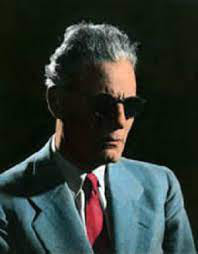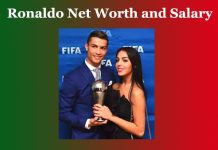Taha Hussein | Brief Biography
Taha Hussein
Taha Hussein (1889-1973) was an Egyptian intellectual, writer, and professor who was one of the most prominent Arab thinkers of the 20th century. He is widely considered as the father of modern Arabic literature and is renowned for his contributions to the fields of literary criticism, literary history, and cultural studies.
Early Life and Education
T Hussein was born in the small village of Maghagha in Minya, Egypt, in 1889. Despite losing his eyesight at a young age, he showed a strong desire to learn and was sent to the nearby town of Bani Suef to study at a school for the blind. There, he excelled in his studies and went on to attend Al-Azhar University in Cairo, where he earned degrees in Arabic literature, philosophy, and Islamic law.
Career and Accomplishments
After completing his education, Taha Hussein worked as a teacher and later became a professor at Cairo University. He was also appointed as the Director of the Egyptian National Library, where he focused on preserving and cataloging Arabic manuscripts. In addition to his academic work, Taha Hussein was a prolific writer and is considered one of the most important Arabic literary critics of the 20th century.
One of T Hussein‘s most famous works is his book “On Pre-Islamic Poetry,” which is considered a groundbreaking study of the pre-Islamic poetry of the Arabian Peninsula. The book challenged traditional views of the time, which held that pre-Islamic poetry was purely oral and had no literary value. Instead, Taha Hussein argued that poetry was an important part of Arab cultural heritage and should be studied as a written form of literature.
Another of Hussein’s famous works is “The Future of Culture in Egypt,” which was published in 1930. In this book, Taha Hussein discussed the need for Egyptians to adopt a modern, secular culture while still preserving their Arab and Islamic heritage. He also argued that Egyptians should learn from other cultures and embrace Western ideas and practices that would help them progress and develop.
Taha Hussein‘s contributions to Arabic literary criticism and cultural studies earned him numerous accolades and honors, including being elected to the Egyptian Academy of the Arabic Language and being awarded the Order of Merit of the first class by the Egyptian government.
Later Life and Legacy
Hussein continued to write and teach until his death in 1973. Today, he is widely considered one of the most important and influential figures in Arabic literature and thought. His works have been translated into many languages and continue to be widely read and studied.
Sources:
“T Hussein: The Father of Modern Arabic Literature.” Egyptian Streets, 7 May 2018, egyptianstreets.com
“THussein.” Encyclopedia Britannica, Encyclopedia Britannica, Inc., 17 Mar. 2021, www.britannica.com/biography/Taha-Hussein.
N. B. This article originally belongs to the book, ‘Brief Biographies of Ancient Thinkers and Writers‘ by Menonim Menonimus.
Books of Biography by M. Menonimus:
- The World Writers-Brief Biographies
- Introduction to World Writers
- Introduction to World Personalities
- Love of Reputed Persons ..
Additional Searches:











